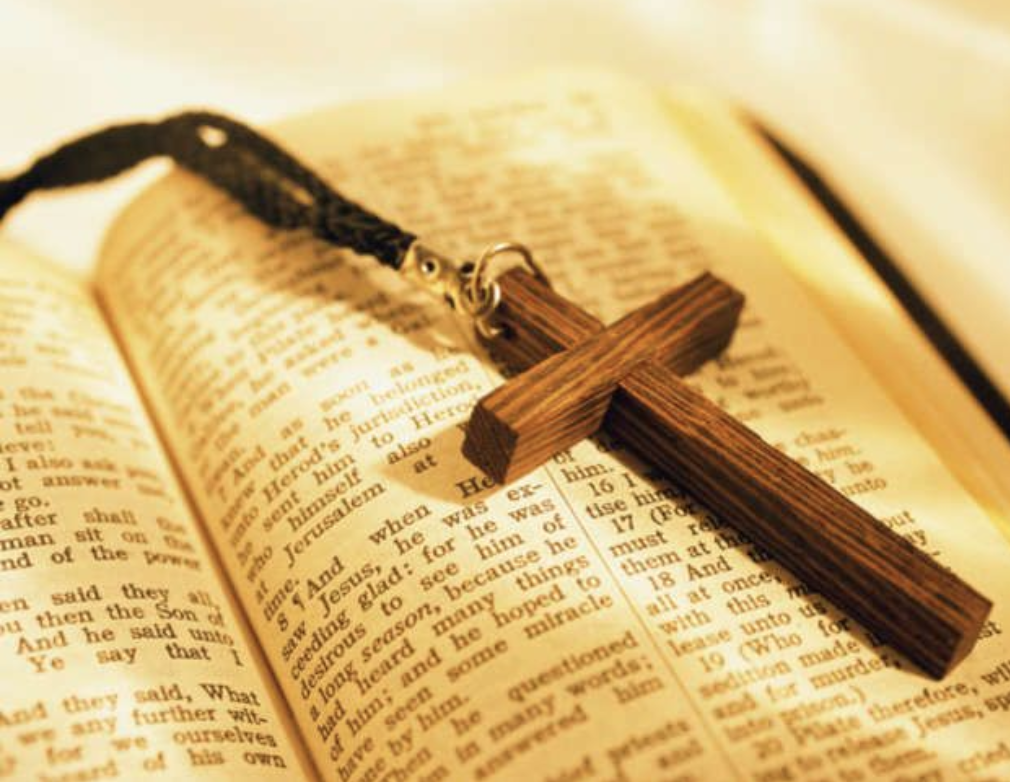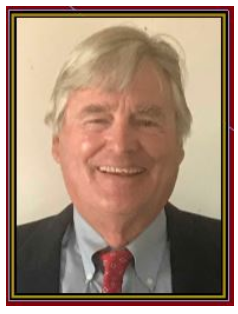Why I Became a Christian

I was baptized in the Episcopal church at the age of two or three. That church played an important part in my youth through high school. My mother reinforced my commitment through her messages and by her example. Biblical stories and pleasant experiences were embedded in the master program, which governs my awareness and dominates my inner nature.
Childhood experiences play a major role in defining the inner master program of all humans. I was lucky in that my childhood was blessed with love and support. I couldn’t have picked better parents. Let me tell you a story about my Dad.
I grew up in Toronto, Canada. One day, the fire trucks came to my house. It was every little boy’s dream. Well almost.
I was seven years old. It was a late fall afternoon, and I decided to rake the leaves in the backyard. I had made the plan on the way home from school. I wanted to surprise my father. After completing the task, I decided to burn them. That’s what my father did. The problem was the leaves were in the middle of the lawn, and the wind was blowing them around. So I moved them away from the wind and placed them up against the garage, which thankfully was not attached to the house. Not long after I lit the match, the fire trucks arrived.
My mother quickly sent her three children to a neighbor’s house, where the woman proceeded to lecture me in no uncertain terms. After the fire trucks left a garage that had burned to the ground, we were returned to our house, and my mother sent me to my room to await my father.
The wait was interminable. It seemed to go on forever as I stared at the baseball players covering the wall and the airplanes dangling from the ceiling. Finally, maybe two hours after being sent to a sanctuary that had turned into a prison, there was a gentle knock on the door. I was terrified.
The first thing my father did as he entered the room was to thank me for raking the leaves. He then told me the garage was not much of an asset to the house. We can plant a garden there next spring. What we really need is a new car, my father continued in a gentle voice, and the insurance money from the garage will cover that nicely. As he sat down on the bed and gathered me into his arms, he told me that I would be the first person to ride in the car if I promised never again to light a fire without him being present. Three weeks later, he arrived home with the new car and took me out for an ice cream cone.
That gentle love and support was with me every day I was in the presence of my father. My one disappointment was that he died too young at 69. I received the same love and support from my mother. I inspire her, she always said.
It’s my understanding that the spiritual process is all about the level of your awareness, which is governed by the contents of your inner master program. Childhood trauma can be very debilitating. Children who do not receive love and support from their parents, who are abused either physically or sexually, develop defensive structures within their master programs that focus their awareness on immediate needs. Extreme poverty and excessive bullying can cause similar results. Psychologists refer to these structures as ego. The brain is programmed to protect our survival. It doesn’t take much to generate these defensive structures.
Defensive structures within one’s master program of this kind create a level of awareness that is self-absorbed, focused primarily on immediate needs, which makes it very difficult to see or understand the needs of others. The ability of the individual to feel empathy or to respond to others with compassion becomes limited. Attitudes and values are formed that reflect these self-centered concerns.
A different set of conditions define humans who have similar childhoods to mine. Defensive structures do not emerge within their inner master program, or if they do, they are far weaker. With these limiting filters as nonexistent or greatly weakened, our awareness is free to move beyond our immediate self. As a result, we are more able to see the needs of others. Empathy flows, and we are able to reach out to others who are suffering with compassion.
Expanded awareness also comes from encounters with a spiritual force of goodness and love, which, in my experience, floats through the universe. These encounters often come by surprise. Awe-inspiring encounters in nature or loving relations between two individuals generate such an expansion in awareness. Again, the result is the flow of empathy, the ability to respond to the needs of another with compassion, and a sense that the world is beautiful and good.
With the theoretical issues behind us, we can get back to the question of why I am a progressive Christian. I am a Christian because of the messages pertaining to the Christian faith I received as a child that became embedded in my inner master’s program. If I had been born in India with Hindu parents, these messages would have been different, and I would have become a practicing Hindu.
The progressive part of my religious heritage comes from a childhood filled with love and support. My awareness is relatively free of defensive structures which enables me to see and empathize with the needs of others. This expanded awareness draws me to a Christian culture defined by a concern for economic and social justice, inclusion, and nonviolent approaches to solving human conflicts. If I had been born to Christian parents and to a childhood filled with trauma, I would most likely be attending a church defined by white Christian nationalism.
An interesting question pertains to what I can do to become a better progressive Christian. Believe me, I have my issues. Trauma and debilitating psychological experiences creating defensive structures within one’s inner master program are not confined to youth. These defensive structures cloud the windows of one’s perception. The Buddha’s answer to expanding awareness is simple. You clean the windows of your perception. The goal is to live more and more in a condition of expanded awareness. Such expanded awareness provides one with peace of mind. You sense joy and beauty, along with the feeling that life has meaning and purpose.
I work on my dirty windows with a practice that combines meditation and self-therapy. I sit quietly, put my body at peace, and then I begin to focus on the issue disturbing me. I try to understand what is causing the problem, and then I look for ways to move beyond it. Sessions of this kind have softened the edges of a debilitating defensive structure and removed a few of them. There are certainly many other ways to deal with these issues. The important point is to face them and not sweep them under the rug because, if not dealt with, they will work to restrict your awareness.
If the example of my spiritual journey has any relevance, the church of the future must change to help its members develop further along their own spiritual journeys. Seminarians should spend less time studying the Bible, Church history, and Christian theology. Instead, the focus of their training should stress positive child-rearing strategies, meditation in its many forms, and psychological therapy. If the essence of Christianity is love, the primary function of the church must be to help its members become more loving. Bible study, the reciting of creeds, and listening to fiery sermons won’t do it. Teaching members how to clean the windows of their perception is a much better strategy.
~~~~~~~~~~~~~~~~~~~~
Dr. Rick Herrick (Ph.D., Tulane University), a former tenured university professor and magazine editor, is the author of six published novels and two works of nonfiction. His latest books are A Christian Foreign Policy, A Man Called Jesus, Jeff’s Journey, A Second Chance. and Moving Beyond Belief. His musical play, Lighthouse Point, was performed as a fundraiser for the Martha’s Vineyard Museum. Herrick is currently retired, living in Bluffton, SC. He is married with three children and seven grandchildren. You can find him at https://rickherrickauthor.com.

